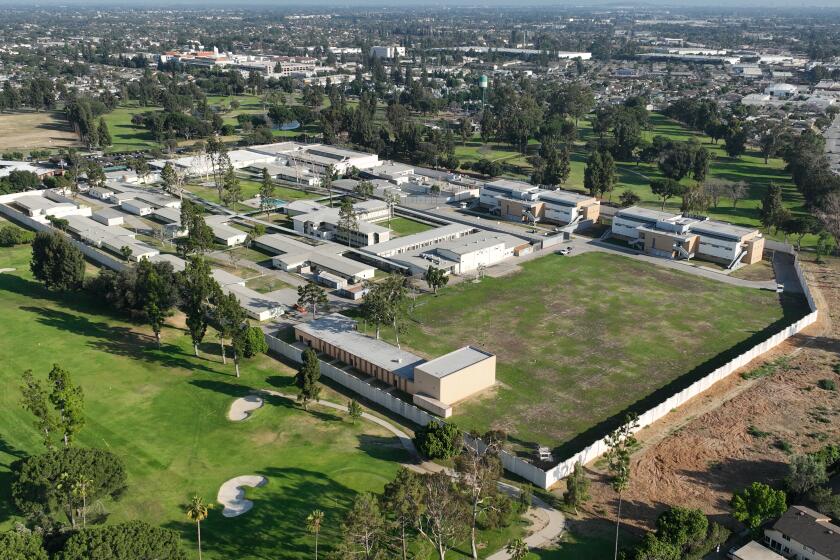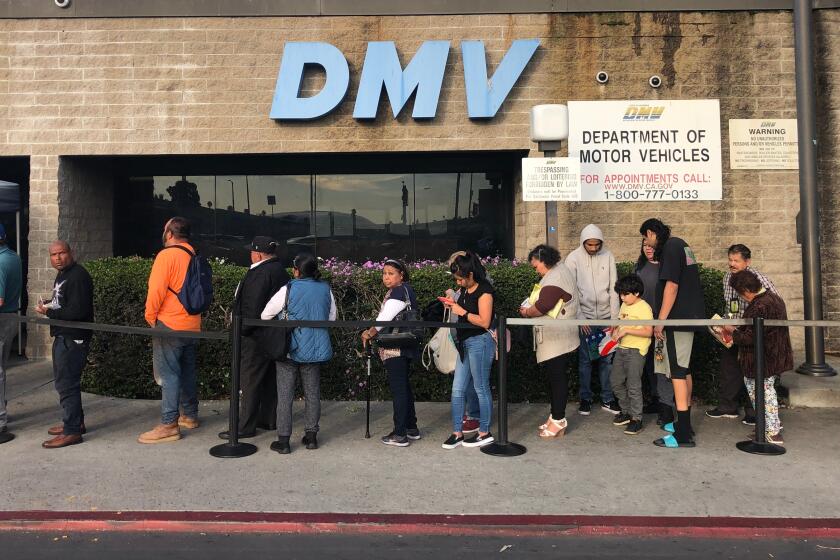California lawmakers to propose legislation giving ride-hailing drivers right to unionize

- Share via
California lawmakers are pursuing legislation that could give drivers for apps like Uber and Lyft the ability to form unions, while still being classified as independent contractors.
Assemblymembers Buffy Wicks (D-Oakland) and Marc Berman (D-Menlo Park) plan to introduce Assembly Bill 1340, also titled the Transportation Network Company Drivers Labor Relations Act, on Tuesday.
The legislation would allow drivers to negotiate pay as well as other terms of their agreements with app-based companies, exempting them from state and federal antitrust laws that would prohibit such activity, according to a draft reviewed by The Times.
“Fundamentally what this bill seeks to do is empower rideshare drivers to advocate for better working conditions,” Wicks said in an interview.
The proposal does not include food delivery drivers.
The exact process of how collective bargaining would be overseen by the state is not outlined in the proposal.
Wicks and Berman said that they expect those details to be hashed out during the legislative process, with conversations from all stakeholders, including drivers, ride-hailing companies and Service Employees International Union California, which is backing the bill.
Typically, antitrust laws would prevent collective action by independent contractors. For example, Seattle faced litigation when it attempted to establish a driver bargaining model through a local ordinance in 2015.
The U.S. Chamber of Commerce and an Uber subsidiary successfully challenged the law, arguing that bargaining by independent-contractor drivers amounted to illegal concerted action and price fixing. The U.S. Court of Appeals for the 9th Circuit disagreed with the city’s position that it had created a state-supervised regulatory program, finding that it was not exempt from antitrust law.
Drivers for Uber and Lyft are considered independent contractors under a voter-approved state law — Proposition 22 — that went into effect in late 2020. The law originally had barred collective bargaining over drivers’ compensation, benefits and working conditions, but an appeals court struck down the provision, arguing it inappropriately limited the California Legislature’s authority.
The state Supreme Court in a ruling last year largely upheld Proposition 22 but did not address the collective bargaining provision.
SEIU California contends that the Legislature has the authority to allow drivers to collectively bargain, based on the appeals court ruling. However, if the bill is ultimately approved by lawmakers, it’s possible ride-hailing companies might challenge it.
“A union is the only pathway for 600,000 rideshare drivers to improve their pay and working conditions under Prop 22,” said Tia Orr, executive director of SEIU California, in an emailed statement.
Uber and Lyft representatives said the companies opposed the proposal, arguing it would make rides more costly for consumers and go against the will of voters who approved Proposition 22.
“At a time when families’ budgets in California are stretched to the max, this proposal would make trips even more expensive,” Uber spokesperson Zahid Arab said in an email.
Lyft spokesperson Shadawn Reddick-Smith said Proposition 22 is drivers’ “preferred way to structure benefits and protections.”
Arnulfo Mejia, 56, a driver for both Uber and Lyft since 2017, said he’s helping to push for the legislation because he hopes a union will be able to address issues of transparency around pay. Rates vary from driver to driver arbitrarily, he said. “I don’t know why, but it feels unfair,” Mejia said.
And Mejia, who was deactivated from Uber last year, wants the companies to have a clear appeals process and explanation when they decide to expel drivers from the platform.
The California proposal is similar to a ballot initiative approved by Massachusetts voters in the fall that was also backed by the Service Employees International Union — as well as the International Assn. of Machinists and Aerospace Workers.
Uber and Lyft did not oppose the Massachusetts initiative.
Minnesota lawmakers proposed a similar bill in February, and unions in Illinois have begun a campaign to unionize drivers in the state, with Uber agreeing to refrain from interfering with the effort.
“This isn’t coming out of left field, “ Berman said. “It aligns with our values in California to make sure drivers get the rights they deserve.”
More to Read
Inside the business of entertainment
The Wide Shot brings you news, analysis and insights on everything from streaming wars to production — and what it all means for the future.
You may occasionally receive promotional content from the Los Angeles Times.










